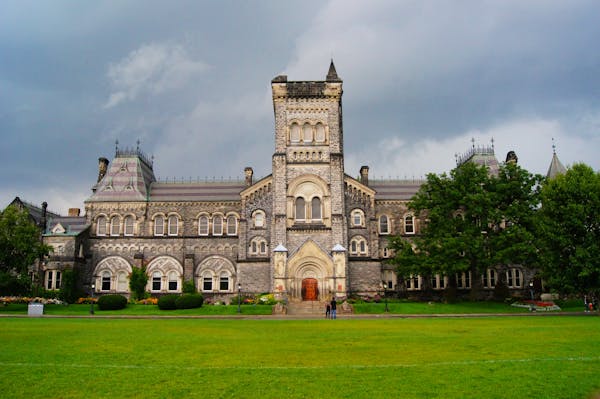Picking the right university can really shape your whole academic and career path. Among the top schools worldwide, the University of Toronto (U of T) stands out for its strong academics, diverse student body, and international reputation. In this guide, I’ll walk you through what you need to know about applying to U of T, from understanding admission criteria to some helpful tips to make your application stand out.
Why Choose the University of Toronto?
The University of Toronto is always ranking among the top schools in the world. Located right in Ontario, Canada, it’s famous for great research chances, talented professors, and a lively campus vibe. U of T has over 700 undergrad programs and more than 200 grad programs spread across three campuses: St. George, Scarborough, and Mississauga.
Key reasons to consider U of T:
- Global reputation and rankings
- Wide variety of academic programs
- Extensive research opportunities
- Diverse and inclusive student body
- Strategic location in a major Canadian city
Understanding the Admission Process
General Admission Requirements
Admission requirements vary depending on the program and applicant’s background (domestic or international). However, the general criteria include:
- High School Diploma or Equivalent: Applicants must have completed secondary education.
- Prerequisite Courses: Each program has specific prerequisite courses. For instance, Engineering applicants must have strong grades in math, physics, and chemistry.
- Competitive Grades: U of T is highly competitive, and admission is based on academic merit. Aim for grades in the upper 80s to 90s percentile.
- English Language Proficiency: If English is not your first language, you may need to submit scores from tests like TOEFL or IELTS.
Application Platforms
- Ontario Universities’ Application Centre (OUAC): Most applicants, especially Canadian high school students, apply via OUAC.
- International Applicants: Must follow specific application instructions available on U of T’s website.
Important Deadlines
| Application Type | Deadline |
|---|---|
| OUAC Application | January 15 |
| Document Upload | February 1 |
| Scholarship Apps | Varies (usually Nov) |
Tip: Start early! Meeting the deadlines is crucial, and late applications are often not considered.
Program-Specific Requirements
Different faculties and programs have unique requirements. Below are some examples:
Engineering
- High 90s average recommended
- Calculus, physics, and chemistry
- Optional Personal Profile
Rotman Commerce
- High 80s to low 90s average
- Math (including calculus)
- Supplementary Application Form (SAF)
Computer Science
- Strong math and computer science background
- Minimum 90% average suggested
- Statement of interest may be required
Life Sciences
- Biology, chemistry, and advanced functions
- High 80s average minimum
- Some programs may require supplementary applications

How to Strengthen Your Application
A strong application goes beyond grades. The following elements can give you an edge:
1. Extracurricular Activities
Highlight leadership roles, volunteer work, and involvement in clubs or sports. U of T values well-rounded students who contribute to campus life.
2. Personal Statements or Essays
Some programs require a written statement. Use this space to reflect on your goals, interests, and what makes you a good fit for U of T.
3. Letters of Recommendation
Although not always required, a strong reference can strengthen your profile, especially for competitive or graduate programs.
4. Portfolio or Audition
If you’re applying to programs in music, art, or architecture, a portfolio or audition may be necessary.
Tips for International Students
Applying from outside Canada? Here’s what you need to know:
- Credential Evaluation: U of T assesses your home country’s education system and converts grades accordingly.
- Language Proficiency Tests: Ensure your TOEFL or IELTS scores meet the required minimums.
- Visa Application: Start your student visa process early.
- Financial Documentation: You may need to show proof of funds for tuition and living expenses.
Important: U of T has a dedicated team to help international students transition smoothly. Use this resource.
Scholarships and Financial Aid
U of T offers numerous merit-based scholarships:
- Lester B. Pearson International Scholarship
- President’s Scholars of Excellence Program
- U of T International Scholar Award
Canadian students can also apply for provincial and federal financial aid.
How to Apply for Scholarships
- Automatic consideration for many merit-based scholarships upon admission
- Separate applications needed for major awards like the Lester B. Pearson
Living in Toronto
Toronto is one of the most multicultural cities in the world. Living here offers:
- Access to cultural events and museums
- Public transportation (TTC)
- Employment opportunities for students
- Safe and vibrant neighborhoods
Housing Options
- On-campus Residence: Guaranteed for first-year students who apply by the deadline.
- Off-campus Housing: Apartments and shared accommodations available throughout the city.
Common Mistakes to Avoid
- Missing Deadlines: This is one of the most common and costly errors.
- Not Researching the Program: Make sure you understand the requirements and expectations of your chosen program.
- Weak Personal Statement: Don’t rush it; this is your chance to stand out.
- Inadequate Proof of English Proficiency: Ensure your scores meet the program’s minimum requirements.
Final Checklist Before Submitting
- All transcripts and documents uploaded
- Application fee paid
- Supplementary applications completed (if required)
- Proof of language proficiency submitted
- References or portfolios uploaded
Conclusion
Thinking about applying to the University of Toronto? Our Admission Guide: Requirements & Tips is here to help you make sense of what can sometimes feel like a complicated process. If you plan ahead, pay attention to the little details, and put in real effort, your application can really stand out among thousands of others. Whether you’re applying from nearby or from across the globe, U of T has opportunities that could change your life in amazing ways.
Use this guide as your starting point, and don’t forget—you can always reach out to the admissions team if you have questions. Best of luck on your journey to joining the University of Toronto family!
